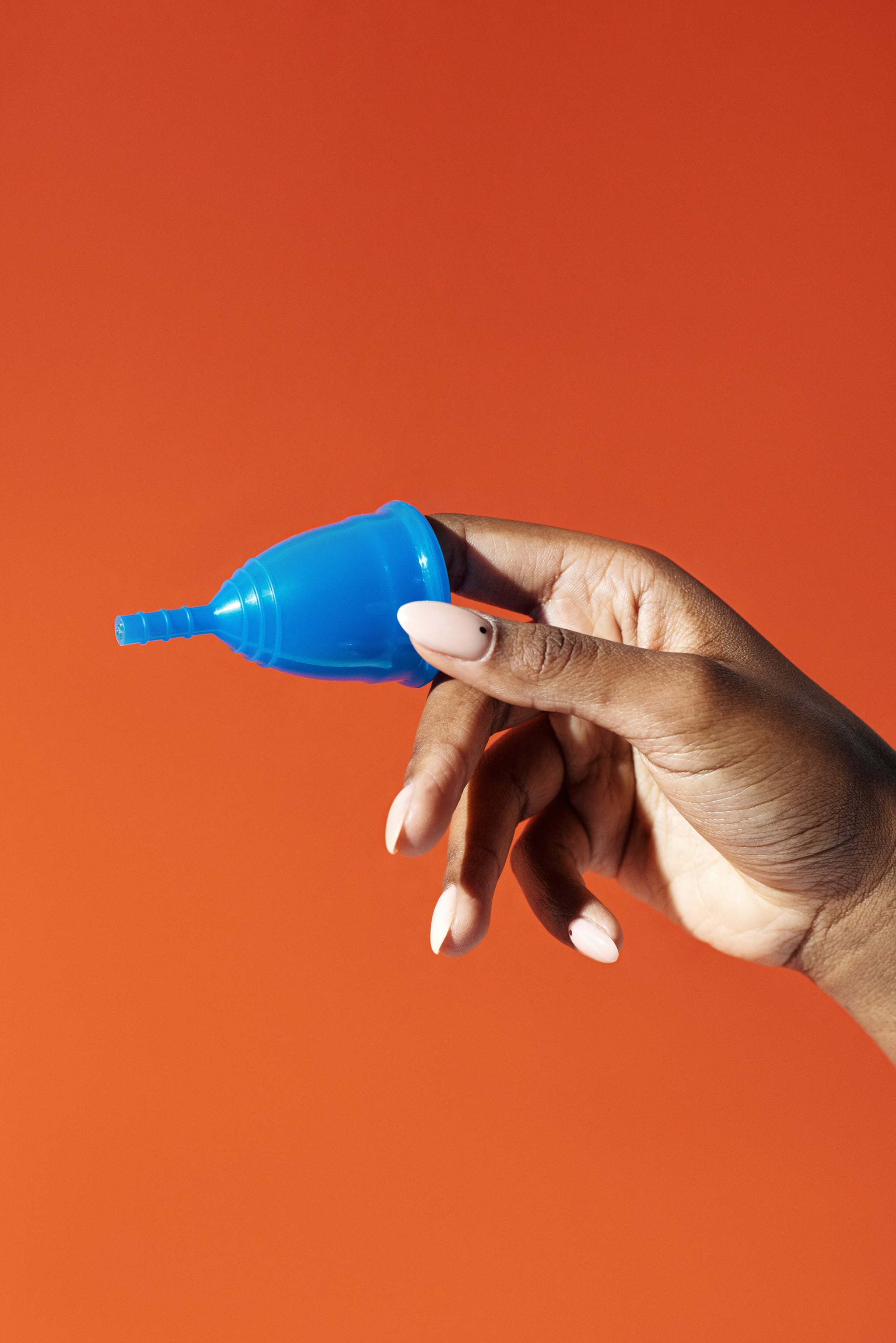
Menstrual cups [1] can be super reliable and convenient tools for manageing menstrual bleeding [2] – but if you're continuously dealing with unexpected leaks while wearing one, you might beg to differ.
Before you declare your cup faulty or swear it off completely, you should know that leaks can occur with any period-care product — not just cups. No matter the type of period-care tool, identifying the root cause of your leaks can help prevent the problem from happening again and hopefully will allow you a better experience with the product.
To help demystify the causes of menstrual cup leaks, we reached out to Lucky Sekhon [3], MD, a board-certified ob-gyn, reproductive endocrinologist and infertility specialist, and Flo [4] medical advisor.
Keep scrolling to check out a few reasons why you might be dealing with this issue, plus expert tips on how to best use this product.
You're Using the Wrong Size Menstrual Cup
Yes, menstrual cups come in different sizes, and wearing the one wrong could be the reason you're dealing with leaks. According to Dr. Sekhon, using a cup that's too small may lead to the overflow of period fluid, therefore potentially causing a leak. On the flip side, using a menstrual cup could also lead to issues. "A cup that is too large may not sit horizontally as it should — this will cause the contents of the cup to spill before it is full," she says.
So how do you figure out your correct size? It could vary from brand to brand. Dr. Sekhon said that some brands categorize sizes based on menstrual flow, while others use age range. So when buying a cup, be sure to read over the specific company's sizing recommendations.
Your Menstrual Cup Is Full
Most menstrual cups can be worn for up to 12 hours at a time [5]. However, depending on your flow, you might need to empty it more frequently to prevent it from overflowing and causing leaks.
On heavy flow days, Dr. Sekhon recommends preemptively changing a menstrual cup every four to six hours, but you may need to change it more frequently if you're still dealing with leaks. Remember: According to the CDC, if your flow is so heavy that it requires changing a pad or tampon every hour [6], you should reach out to a doctor.
If you're new to menstrual cups, Dr. Sekhon said that keeping a diary of when leaks occur could help you figure out the best time to empty your cup.
Your Menstrual Cup Isn't Placed Properly
According to Dr. Sekhon, a menstrual cup that's tilted on an angle or placed too high could lead to unexpected leaks. "The cup should be inserted so it sits horizontally, toward the tailbone, at the base of the vaginal canal," Dr. Sekhon confirmed.
Many menstrual cup brands provide detailed step-by-step instructions for properly inserting and placing these period-care tools.
Dr. Sekhon recommends first relaxing your pelvic muscles and aiming the menstrual cup toward the tailbone. "The goal is to position the cup at the opening of the cervix. After you insert it, feel around the perimeter to ensure none of the edges are folded and the cup is fully open."
You'll also want to ensure the cup isn't too high. Dr. Sekhon said the stem of the menstrual cup shouldn't be more than half an inch into the vaginal canal.
The Menstrual Cup Didn't Create a Seal or Is Folded
A suction-like seal between the menstrual cup and the vaginal walls is what helps prevent leaks. So, therefore not effectively creating said seal could lead to leaks. "You can ensure a seal by rotating the cup 360 degrees once it is in the proper position," Dr. Sekhon said.
Another reason you might be experiencing leaks is that your menstrual cup is folded inwards. This, Dr. Sekhon said, would not allow the cup to fully expand to properly and effectively collect the menstrual fluid.
Again, many brands have helpful instructions on how to properly create a seal or fully expand their specific menstrual cups.
For many first-time menstrual cup users, there can be a learning curve. As you're getting the hang of using this type of period-care product, Dr. Sekhon said that wearing a back-up product, like a pad, could help you feel more confident. It may also make you less stressed about potential leaks.

